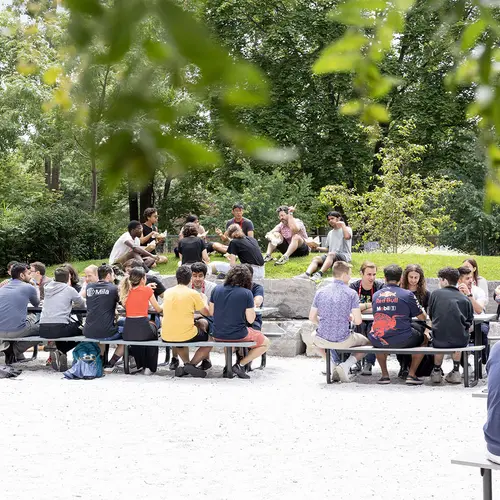
Amal Zouaq
Biographie
Amal Zouaq est professeure titulaire à Polytechnique Montréal (GIGL). Elle est titulaire d’une Chaire FRQS (Double) en IA et santé numérique. Elle est également professeure IVADO, membre du consortium CLIQ-AI (Computational Linguistics in Québec) et professeure associée à l'Université d'Ottawa.
Ses intérêts de recherche comprennent l'intelligence artificielle, le traitement du langage naturel et le Web sémantique. Elle est directrice du laboratoire de recherche LAMA-WeST, spécialisé dans tous les aspects du traitement du langage naturel et de l'intelligence artificielle, avec un focus particulier sur les technologies du Web sémantique. Les bases de connaissances du Web sémantique peuvent représenter une source de connaissances à grande échelle pour les modèles d’intelligence artificielle et peuvent être utilisées, entre autres, pour garantir la validité des informations et l’explicabilité des modèles d’intelligence artificielle.
Les projets de recherche LAMA-WeST abordent les défis liés à l'apprentissage des représentations, aux interfaces en langage naturel et à la réponse aux questions, au raisonnement automatisé, à l'apprentissage et à l'alignement des bases de connaissances, à l'apprentissage d'ontologies, à l'ingénierie et à la modélisation des connaissances, ainsi qu'à l'extraction et à la génération d'information, pour n'en nommer que quelques-uns.
Professeure Zouaq est membre du comité de programme de nombreuses conférences et revues sur l'ingénierie des connaissances et des données, le traitement du langage naturel, l'exploration de données et le Web sémantique.


